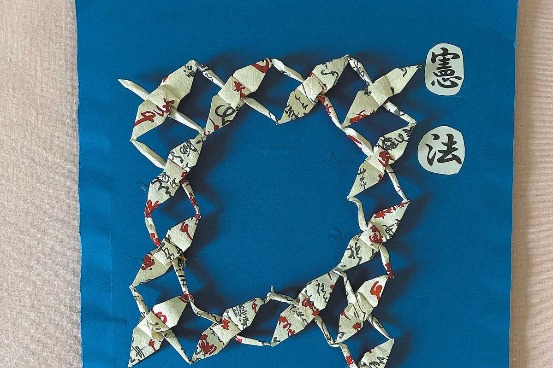COVID-19 infection may 'make brains smaller'


A new study by researchers at the University of Oxford has suggested catching COVID-19 may lead to changes to the brain.
It is as yet unclear if the changes are lasting, but magnetic resonance imaging (MRI) scans conducted before and after infection have shown that even in mild cases of infection, patients' brains have shrunk slightly. The tissue lost has particularly affected areas of the brain relating to memory and the sense of smell, which has been reduced in many patients throughout the pandemic.
"We were looking at essentially mild infection, so to see that we could really see some differences in their brain and how much their brain had changed compared with those who had not been infected was quite a surprise," the report's lead author, Gwenaelle Douaud, a professor working at Oxford's Wellcome Centre for Integrative Neuroimaging, told the BBC.
The findings of the team's study are published in the journal Nature. It benefitted from the findings of a pre-existing long-term research project looking at the health of half a million people that the UK Biobank has been carrying out for more than a decade before the pandemic hit.
This allowed researchers to compare people's health before and after infection. It looked at 401 participants who had been infected, on average four and a half months after their infection, which in 96 percent of cases was regarded as mild, and compared their overall health with 384 people who had not been infected.
Among the differences noted were brain shrinkage of up to 2 percent. Another part of the study reported that people who had tested positive needed more time to complete a variety of cognitive tests, with researchers noting "a significant, deleterious impact associated with COVID-19.
"Significantly greater cognitive decline, which persisted even after excluding the hospitalized patients, was seen in the COVID-19 positive group between the two time-points," the study said.
The brain is regarded as an organ with the ability to heal itself, so the lasting impact will require further studies, and it has been suggested that the reduction of brain size could be explained by cells dying off because of people losing their sense of smell after infection.
"Whether this deleterious impact can be partially reversed, or whether these effects will persist in the long term, remains to be investigated with additional follow-up," the report said.
It may also shine some light on the issue of long COVID, which some patients have experienced long after initial infection.
"These findings might help to explain why some people experience brain symptoms long after the acute infection," said research team member Max Taquet.
"The causes of these brain changes, whether they can be prevented or even reverted, as well as whether similar changes are observed in hospitalised patients, in children and younger adults, and in minority ethnic groups, remain to be determined."
































